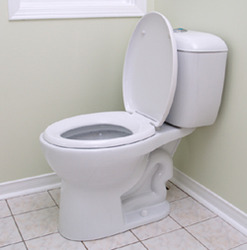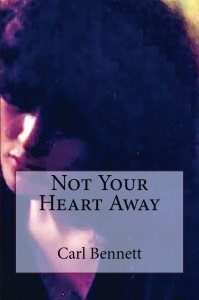Lucy Kellaway wrote about the death of the office recently. I should say ‘peacefully, at home, after a long illness,’ but my recollection of offices was that they were anything but peaceful and the sooner they died the better. Except I don’t think they will.
I’m about the same age as Lucy Kellaway, so I remember the same kind of London offices she does. I worked in the same office with, and thankfully not for, her husband. I won’t call him a total arse, but when a grown man gives meaningless, single-word answers to office questions and someone else later explains ‘he was being Michael Caine today’ then my first thought isn’t ‘wotalarf.’ I’d have cheerfully blown his bloody doors off.
Like her (and I don’t know if I would, having only met her husband when he was, for reasons of his own, pretending to be a Cockney actor in a 1960s film, as any grown office worker might do), I first knew offices in the 1980s. I don’t know if it was the end of the golden age, but it was a different time altogether, where behaviour that would get you sacked today was just well, normal office behaviour.
Office technology was a computer room, where no mortal was allowed to tread. There was a Telex machine, which admittedly did look like something from a Michael Caine spy film and ties and jackets were expected. Your cuffs might be brown with dirt, but so long as they were on a butcher-striped shirt and fastened with links then you were fine. Smoking helped too. I nearly typed that it wasn’t compulsory, but obviously it was; whether you bought cigaretttes or not you got to smoke everybody else’s in an office where air conditioning didn’t exist. In the best office I worked in, long gone in Kingly Street now, the windows were never opened because of the mite-infested pigeons roosting outside in the light well. You could chain your bicycle to the railings on the stairs though, at least.
And the drinking. Drinking was, at all intents and purposes, compulsory. Two pints at lunchtime was fairly standard unless it was a Monday, when you could say you’d had a heavy weekend. And Fridays, when you could probably do three without anyone saying anything at all. If you were really on form then Gilbey’s gin and tonic mixer cans could be passed off as healthy sparkling water, especially if you got rid of the can and poured the contents into a cup from the coffee machine. And put it in your desk drawer if your boss’s boss’s boss was around.
I missed, by maybe only a couple of months, tea-ladies with a trolley and a staff canteen. We still had Mom & Pop Italian sandwich bars where you could get proper fresh mozzarella sliced with tomato on panini before Pret deliberately bought the premises next door and put a family out of work, something I’ve never forgiven them or their pretendy artisan-food-fan customers for.
As for high-functioning alcoholics – the manager who used to trade sex for cocaine on her boss’s wife’s desk, the one who got arrested for over £1,000 worth of parking tickets in the office, the one who flagged down a cab for 100 yards because she couldn’t walk that far? The girl who was so enraged at being mugged of her week’s wages that when the police arrived they arrested her for a breach of the peace? That kind of functioning alcoholic? Yep. Been there.
When I say been there, only with the latter in fact. I mean that in a loving and caring way, obviously. Ye gods were we drunk. And that was the deal. London floated on alcohol. The office was the interruption between pub at lunch and pub autopsy in the evening, before you maybe went on somewhere for dinner and more alcohol. Maybe a gin and Noilly Prat, something light as an aperitif. Maybe the older guy at the next desk would mumble ‘chemist’ and stumble out of the office to be back in about. fifteen minutes, refreshed from the off-licence and the bookies next door. If you mentioned it then you’d better be prepared to be called a sanctimonious prig at full volume and in one way, those people were right: the problem was the people who couldn’t cope, the ones who had a drink and their work suffered. Nobody had much time for them, as I remember.
And the sex thing, of course. I never did in the office. Not actually in the office, although like most people I knew, spent some time setting up things for after the office. But not your own office. Not on your own doorstep. That was a firm rule – only the week and foolish did that. For when you stop, you see? What do you say to them then?
You really got me
The thing that really got me in Ms Kellaway’s article was the bit about loyalty.
Without an office, without a body of people beavering away at the same place and time, it is hard to know how a company could ever create any sort of culture or any fellow feeling — let alone anything resembling loyalty.
For all the alcohol, and possibly because of all the alcohol, the cigarettes, the jangling, cuff-linked cigaretty posturing and preening of 1980s Soho, where after-work meant playing backgammon in the bar down the street (not for money. I didn’t have enough money to lose. Even though a Sociology degree had given me pretty decent backgammon skills) there actually was a kind of culture and camaraderie. It was hard to tell. We were mostly half-drunk and it’s easy to confuse trying to look down someone’s shirt on your fourth drink with a fine fellow-feeling, despite that it was only fellow-ettes I intended doing that with.
It was when the drinking stopped that all that fell apart. I was working at CACI. By 1990 the most career-damning insult was to be called frivolous. As in ‘that’s a frivolous argument.’ Now, you might say that a company that distinguished itself most by running Abu Ghraib prison in occupied Iraq probably wouldn’t rate frivolity that highly. Which would be to miss the point. Back then we just thought the accusation of frivolity meant the person saying it didn’t have the wit to riposte. Maybe they just hadn’t drunk enough, but by then they didn’t have office competitions on who could rack-up the biggest lunch-bill in a week. Wierdly, that was when loyalty was found to be a one-way street, too. Employees would get speeches about it, just like the ones about how great open-plan offices were, while they saw their boss’s promotion measured in how opaque their office door was. And how people usually got sacked pretty soon after the loyalty speech.
I worked for myself soon after the rot set in. The internet came. There was a place nearby that re-sold the contents of bankrupt businesses, which there were a lot of back then. I remember walking across a field clutching the future in the shape of a US Robotics modem, thinking this was the future. Everyone could work from home now. You wouldn’t have to commute. You wouldn’t have to spend three-quarters of your life within 200 yards of your office. And I totally missed the point, the way UK infrastructure totally missed the bus, to coin a PC-related phrase.
When I moved out to Suffolk I read the local papers to get a feel for the place. It’s amazing what you find. I’d been in Cannock Chase one day, stopping for petrol, when I read about a murder almost exactly a hundred years to the day from another murder there, with enough similarities to make at least a six-episode TV series. I didn’t find two murders a hundred years apart, guv. I found the mayor of Leiston who gave the best and worst UK business quote ever:
How can we have more jobs without more heavy lorries?
Eastern Daily Press.
That was 2001. Then and now I thought it was pathetic. It wasn’t just the lack of vision; it was the total failure of ambition, the ‘it’ll never change round here’ forelock-tugging nimbyism of it all that makes me cringe. Forget embarrassment: I’m talking about shame.
The Suffolk village where I lived then was one of the very last to get broadband. A decade after we’d started using the web in our office we were still paying for every single minute of dial-up time. The internet took off so much faster in the USA because the technology meant it was only ever a local phone call. It was in the UK too. The difference is and was that in the US, local calls were free.
Suffolk has a lot. Beautiful landscape. Peace. Tranquility. Big skies. It could have been the most miraculous creative hub. If it had had decent connectivity. As it is, it didn’t even have proper offices staffed by lecherous semi-pro alcoholics reeking of lust, sweat and cigarettes. It’s a different world.





